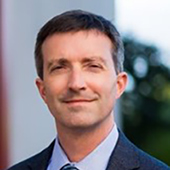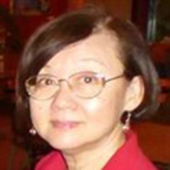Please note: AABB reserves the right to make updates to this program.
Live Program Date: Wednesday, August 24, 2022 - On-Demand Available
Program Number: 22EL-768
Director/Moderator: David Unold, MD, Health Sciences Associate Clinical Professor, UC Davis School of Medicine, Sacramento, CA
Speakers:
Transfusion reactions presenting with pulmonary signs and symptoms are common. While progress has been made in the prevention of Transfusion Related Acute Lung Injury (TRALI), Transfusion Associated Circulatory Overload (TACO) remains a common cause of morbidity. There is difficulty in differentiating between TACO and TRALI given similarities between the two entities and lack of a definitive biomarker for TRALI. Led by a transfusion medicine specialist and a pulmonary/critical care specialist, this program will explore pulmonary transfusion reactions and propose novel considerations regarding this difficult topic. Particularly, the role of clinical specialists in the diagnosis of pulmonary transfusion reactions will be elucidated.
After participating in this educational activity, participants should be able to:
Please note: if you registered for the live eCast you do not need to register for the on-demand eCast (access to the on-demand eCast was included with the live eCast registration).
| Single Viewer | Register |
| Group Viewing | Register |
AABB designates both the live and on-demand version of this eCast each to be eligible for 1 continuing education credits/contact hours for California Lab Personnel, Florida Lab Personnel and General Participation credit. The final number of credit(s) and credit types awarded for this program (live or on-demand) was determined by the program duration. Please note this program is not eligible for continuing education credit for physicians or California Nurses. For more information on each credit type please visit our Continuing Education Credits webpage.
Disclosures for the planners of this event can be found here. Disclosures for the program faculty are provided at the beginning of the program.
Claiming Credit
Live Activity - Upon completion of the live activity, you will receive instructions to complete your evaluation, which is necessary to claim credit and receive your certificate of attendance/completion (credit must be claimed by the date provided in the instructions). The evaluation can be found by logging into the AABB Education Platform.
Enduring Activity - Once the enduring (on-demand) program is available, you will receive instructions to access the AABB Education Platform. Upon completion of viewing the enduring activity, you will need to complete the evaluation, which is necessary to claim credit and receive your certificate of completion (credit must be claimed by the date provided in the AABB Education Platform).
Program & Credit Expiration Dates:
 Dr. Mark R. Looney is a Professor of Medicine and Laboratory Medicine at the University of California, San Francisco. He received his undergraduate degree from Lipscomb University and his medical degree from the University of Tennessee. He then completed his residency in Internal Medicine and a fellowship in Pulmonary and Critical Care Medicine at UCSF. Dr. Looney’s laboratory investigates acute lung injury, ARDS, and innate immunity.
Dr. Mark R. Looney is a Professor of Medicine and Laboratory Medicine at the University of California, San Francisco. He received his undergraduate degree from Lipscomb University and his medical degree from the University of Tennessee. He then completed his residency in Internal Medicine and a fellowship in Pulmonary and Critical Care Medicine at UCSF. Dr. Looney’s laboratory investigates acute lung injury, ARDS, and innate immunity.
 Dr. Pearl Toy is an Internist who specialized in Hematology and Transfusion Medicine and is Professor Emeritus and Blood Bank Director Emeritus at the University of California San Francisco School of Medicine (UCSF). Her work there from 1980-2022 included research, teaching, patient care and volunteer work. Early on in 1981, she was director of the San Francisco Center, one of three centers of a study led by Cladd Stevens, MD to determine the efficacy and safety of the hepatitis B virus (HBV) vaccine; the successful results led to FDA approval of the vaccines that safely prevented transmission of HBV from infected mother to child.1,2 In the AIDS era, she was Director of the American Red Cross in San Jose, CA (1983-84) where she installed preventive measures to help protect the safety of the blood supply prior to the availability of HIV testing. She also investigated autologous blood donation and was Chair of the NIH committee that encouraged the use of autologous blood. In 2003-5, she was Chair of the NIH committee that redefined Transfusion-Related Acute Lung Injury (TRALI), the #1 cause of death from transfusion at that time. She was P.I. of the NIH supported TRALI study at UCSF and Mayo Clinic; the study found the risk factors and the prevention method was successful. She graduated with honors from Smith College (Phi Beta Kappa) and the Stanford School of Medicine (Alpha Omega Alpha). Other honors include the Smith College Medal, UCSF Distinguished Teaching Award, the California Blood Bank Systems Award, and the International Woman in Transfusion Medicine Award. She was invited to speak at the inaugural Margot Kruskall lecture series at Harvard Medical School.
Dr. Pearl Toy is an Internist who specialized in Hematology and Transfusion Medicine and is Professor Emeritus and Blood Bank Director Emeritus at the University of California San Francisco School of Medicine (UCSF). Her work there from 1980-2022 included research, teaching, patient care and volunteer work. Early on in 1981, she was director of the San Francisco Center, one of three centers of a study led by Cladd Stevens, MD to determine the efficacy and safety of the hepatitis B virus (HBV) vaccine; the successful results led to FDA approval of the vaccines that safely prevented transmission of HBV from infected mother to child.1,2 In the AIDS era, she was Director of the American Red Cross in San Jose, CA (1983-84) where she installed preventive measures to help protect the safety of the blood supply prior to the availability of HIV testing. She also investigated autologous blood donation and was Chair of the NIH committee that encouraged the use of autologous blood. In 2003-5, she was Chair of the NIH committee that redefined Transfusion-Related Acute Lung Injury (TRALI), the #1 cause of death from transfusion at that time. She was P.I. of the NIH supported TRALI study at UCSF and Mayo Clinic; the study found the risk factors and the prevention method was successful. She graduated with honors from Smith College (Phi Beta Kappa) and the Stanford School of Medicine (Alpha Omega Alpha). Other honors include the Smith College Medal, UCSF Distinguished Teaching Award, the California Blood Bank Systems Award, and the International Woman in Transfusion Medicine Award. She was invited to speak at the inaugural Margot Kruskall lecture series at Harvard Medical School.